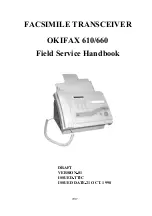
63
04
QUICK ADJUSTMENT REFERENCE CHART
Functions
Presser
Foot
Stitch Pattern
Auto
Manual
Auto
Manual
Auto-lock Elongation
Mirror/
Presser foot Twin needle
Reverse
Width (mm)Length (mm)
Memory
22
23
24
25
26
27
28
29
30
31
32
33
34
35
36
37
38
39
40
41
42
43
44
45
46
47
48
49
50
51
52
53
54
55
56
57
58
59
60
61
62
7.0
7.0
7.0
7.0
7.0
7.0
7.0
7.0
7.0
7.0
7.0
7.0
7.0
5.0
6.0
6.0
4.0
4.0
6.0
6.0
6.0
6.0
6.0
6.0
5.0
5.0
5.0
7.0
5.0
7.0
7.0
7.0
5.0
6.0
5.0
7.0
6.0
7.0
7.0
7.0
7.0
2.5~7.0
2.5~7.0
2.5~7.0
2.5~7.0
2.5~7.0
2.5~7.0
2.5~7.0
2.5~7.0
2.5~7.0
2.5~7.0
4.0~7.0
2.5~7.0
4.0~7.0
2.5~7.0
5.0~7.0
5.0~7.0
3.0~7.0
3.0~7.0
3.0~7.0
3.0~7.0
3.0~7.0
3.0~7.0
5.0~7.0
3.0~7.0
2.5~7.0
2.5~7.0
2.5~7.0
3.0~7.0
3.0~7.0
2.5~7.0
2.5~7.0
2.5~7.0
2.5~7.0
4.5~7.0
2.5~7.0
2.5~7.0
3.5~7.0
2.5~7.0
2.5~7.0
3.5~7.0
3.5~7.0
0.5
0.5
0.5
0.5
0.5
0.5
0.5
0.5
0.5
0.5
0.5
0.5
0.5
2.5
1.0
1.0
1.0
1.0
1.0
1.0
1.0
1.5
1.0
1.5
2.5
2.5
2.5
2.0
2.5
2.0
2.5
2.5
2.5
2.0
2.5
1.5
1.5
2.5
2.5
2.5
2.0
0.3~1.0
0.3~1.0
0.3~1.0
0.3~1.0
0.3~1.0
0.3~1.0
0.3~1.0
0.3~1.0
0.3~1.0
0.3~1.0
0.5~1.0
0.5~1.0
0.5~1.0
1.0~3.0
1.0~3.0
1.0~3.0
1.0~3.0
1.0~3.0
1.0~3.0
1.0~3.0
1.0~3.0
1.0~3.0
1.0~3.0
1.0~3.0
1.0~3.0
1.5~3.0
1.5~3.0
1.0~3.0
1.5~4.5
1.0~3.0
1.5~3.0
1.5~3.0
1.5~3.0
1.5~3.0
1.5~3.0
1.0~3.0
1.5~3.0
1.0~3.0
1.0~4.5
2.0~3.0
1.0~3.0
A
A
A
A
A
A
A
A
A
A
A
A
A
A
A
A
A
A
A
A
A
A
A
A
T
T
T
T
A
T
T
T
T
T
T
A
A
T
T
A
T
Cross
stitches
Satin
stitches
Decorative
stitches




































